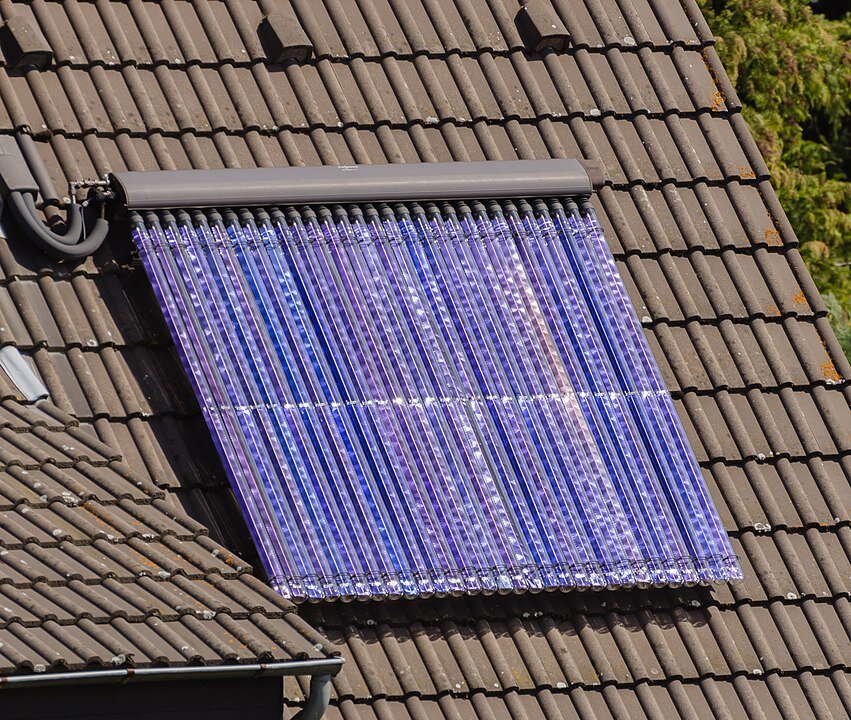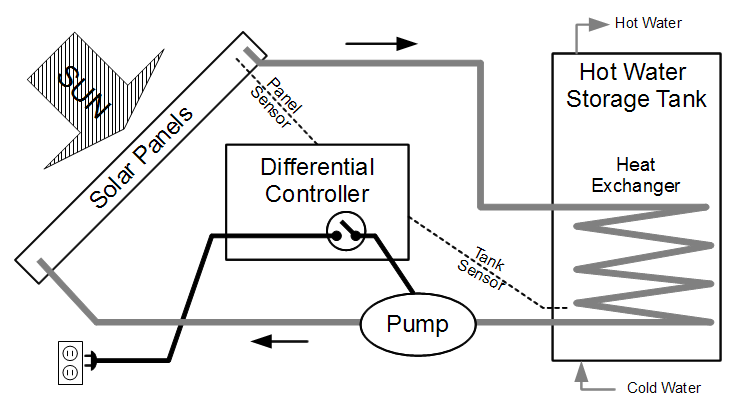We all know how important hot water is for washing dishes, cooking food, bathing, and so on - which of course, makes it one of the most steadily needed resources in homes. How we heat our water makes a difference in our costs, ease of use, and carbon footprint.
Though there is an array of options for off-grid homes to heat water including wood stoves and kerosene, the main choice is between solar and propane.
In this article, I will be introducing you to two alternative ways you can get hot water readily available - Solar and Propane. We shall be looking at their pros and cons, and you can decide which would be fitting for your lifestyle.
Comparing system? Check out our articles on Solar Vs Propane Refrigeration and Wood Vs Propane Heating!
Grab a snack, let's go!
Solar
Yes, we have heard a lot about how much we can use solar energy, and using it to heat water isn't left out of the picture. Just imagine harnessing the energy from the sun not just to power your appliances at home, as most people would only think it does, but to also heat the water for a shower, cup of tea, and washing dishes.
Solar energy has become an increasing choice by many off gridders as shown by the International Renewable Energy Agency in their Off-grid renewable energy 2019 statistics. Despite the higher upfront costs you face installing a solar water heating system that runs directly into your home, in the long run, it only boosts the value of your home.
Solar Panels are Tied to the Weather
The biggest challenge I have heard people give about a Solar Water Heating System (SWHS) is that the water does not get hot enough. Solar-power users living in countries with cold or cloudy climates have experienced such power fluctuations.
The thing is, solar panels are tied to the weather and basically need all the sunlight they can get to work at full capacity. So a cloudy day might just translate into less energy production.
How does the Solar Water Heating System (SWHS) work?
The solar water heating system (SWHS) mainly works by using a Solar Thermal Collector (which could be a flat plate collector or an evacuated tube collector) to heat water under direct sunlight. Water or working fluid is made to pass through the solar thermal collector just as the sun rays heat up the panel, the water or fluid is heated up too.
Then, an Energy Transfer System is used to transfer the water or the working fluid to and from the solar thermal collector into or around the storage tank (in the case of working fluid). The energy transfer system is basically a small pipeline system for the passage of hot and cold water just enough to go from the storage tank to the solar thermal collector.
The Solar thermal collector can be placed on the roof or anywhere where it receives sunlight.
Passive and Active Systems
A passive solar hot water heater simply allows the water to heat up in a collective. This can be a specialized bag, a barrel painted black, or tubes on the roof. Then the heated water is gravity fed to where it is needed.
You can tweak your solar water heating system (SWHS) by choosing to make it 'Active' which means you add circulating pumps and controls.
A Closed loop active solar hot water system. Graphic by Scott Reed
Pros of Using Solar
It is environmentally friendly
Low maintenance costs
Energy is totally free
Makes an easy DIY project
Clean energy, it does not give off any carbon footprint
Cons of using solar
Setup costs can be high especially if purchasing a commercial system.
Needs a sunny location
Takes up more space
Cost of setting up a solar water heating system (Passive)
Copper Flat plate Solar Thermal Collector (length 3ft, width 2ft) cost $119
Solar water heater tank (150 gallons) cost $107
Thermal pipes per foot cost $6
Connection cost $200 or less
(Prices are bound to vary)
Or you can choose to buy an all-in-one Evacuation tube collector solar water heater (100 liter) which would cost about $250 or a little more.
Propane
Propane water heating accounts for a great deal for people who live in rural areas. Of course, using a propane water heater offers you a huge break from the load electric water heaters place on your electric bill.
Thanks to the modernity of life, propane water heaters have transcended from having bulky tanks that could take up a measurable amount of space, into tankless heaters that boost the supply of hot water almost immediately.
Though propane heaters with tanks still prove very efficient. But that can only be a good idea if you are ready to store hot water for a long period of time at the expense of your room space.
Where it Begins to Flop
Even as propane heaters just stand as the regular backup choice for a steady warm cozy home in the winter season, things could go sideways when the same propane heater starts contributing to increasing the surrounding temperature by a few degrees when it's summer.
Propane is also a fossil fuel so it is detrimental to the environment.
How Does Propane Hot Water Work?
Basically, a propane water heater works by burning liquid propane which heats up the water. The thermostat on the propane water heater controls water temperature by initiating ignition on the pilot light which ignites to burn the propane gas that has been dispersed.
However, once the set water temperature is attained, the thermostat shuts off the gas valve, and the pilot light is switched off. The heater has two water fixtures that allow for the outflow of hot water and the inflow of cold water into the tank or thermal pipe system (in the case of a tankless heater).
Pros of Using Propane.
Lower setup cost
It is reliable and can be used at any time. You don’t need sun.
They are fast performers
Cons of Using Propane
Maintenance costs accumulate
Fossil fuel
Risk of fire outbreak
If handled carelessly, the leak of propane could be detrimental to the health.
Carbon monoxide and smoke alarms are a must for every home. Also, learn what leaking propane smells like. The manufactures add an odor to it so leaks can be detected.
Cost of setting up a Propane heater (tankless)
A tankless heater cost about $275
100 gallons of propane Gas cost $500 (could last, highest, a year - maintenance cost)
Thermal pipes per foot cost $6
Connection labour cost $100
(Price will vary according to model)
Or you can choose to buy a tank propane water heater which is just the simplest option when it comes to setting it up. Installing a 60-gallons tank propane water heater would cost a total of $1,200 on average.
Take Away
Wow. Seems like we are torn between two efficient alternative ways of heating water off the grid. For the most part, both systems are great and are a good way to reduce your carbon footprint.
So, if you're interested in a solar water heating system, I guess you must have agreed to its convincing pros which include a totally free energy source and a low maintenance cost. In addition, it is clean energy with a low carbon footprint.
Though setting up a solar water heating system isn't rocket science, it can be a little tasking if you are buying separate components. I came across an incredible load of information EnergySage offers to people who are looking forward to DIY solar water heating systems.
Propane, on the other hand, is a fossil fuel and contributes pollution in its manufacturing and delivery systems. Refilling gas cylinders can be costly and time-consuming if you are hauling them yourselves. But It's highly recommendable if you need hot water in a jiffy.
Setting up a tankless propane water heater can be tasking especially if you don't have any experience with plumbing works. It's ideal asking up a service company to do the connections for you
Author, Ben Danor, is a Cross Riverian who cares for his environment. He writes on a wide range of genres. In his spare time, he writes lyrics and compose songs. He is also a lover of animals.
You can also Write For Us



